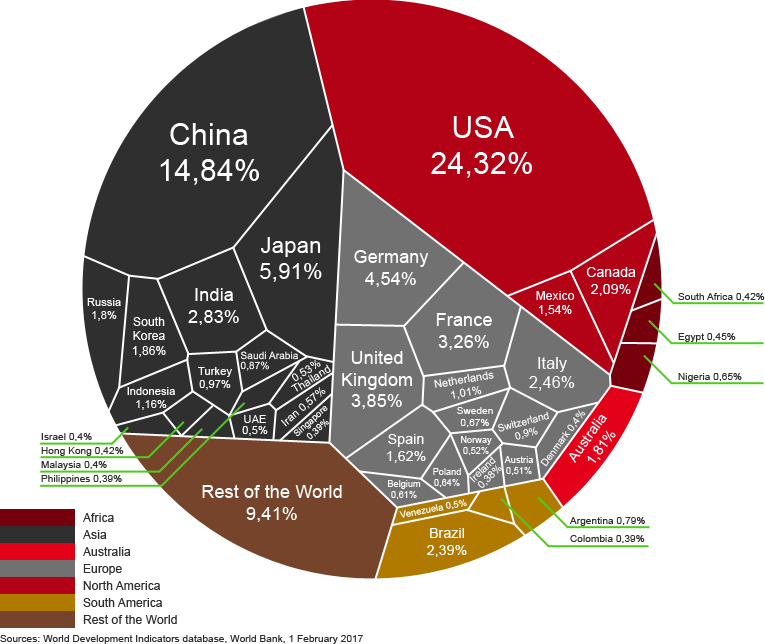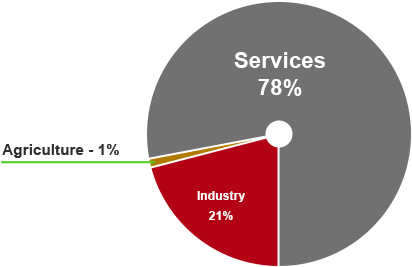GDP
What is GDP?
GDP (Gross domestic product): what you should know.
Gross domestic product (GDP) is an economic measure showing the value of all final goods and services produced in a country. The market value is usually determined on a yearly basis. Specialists calculate the services value in different economic spheres of a certain state. This macroeconomic indicator does not depend on where the used resources are from.
Calculation methods
To calculate GDP correctly, all goods and services produced for a certain year should be taken into account without double counting. That is why only final goods and products are mentioned in the GDP definition.
If intermediate goods, which are used for production of other goods, are included in GDP, the GDP value will be overestimated.
GDP is determined as a monetary estimate of final goods and services produced over a year; spending of all economic subjects on final products should be added together.
To calculate GDP based on spending or spillover benefits, the following values should be added:
- private consumption (C);
- gross private investments in national economy (I);
- government spending on final goods and services (G);
- net exports, exports minus imports (NX).
GDP per capita
GDP deflator
The gross domestic product deflator is a price indicator for measuring the general price level of goods and services for a certain period of time in an economy. It is calculated as the Paasche index and is expressed in percent.
The GDP deflator is the ratio of the nominal GDP expressed in market prices of the current year to the real GDP expressed in prices of the base year.
Where:
- Qt - production volume of the given period;
- Pt - price in the given period;
- P0 - price in the base year.
Nominal and real GDP
The nominal GDP is GDP calculated in current prices, which are the prices of the current year. The nominal GDP is influenced by two factors:
- change in real production volume;
- change in prices.
To find out the real GDP, changes in price levels should be excluded from the nominal GDP.
The real GDP is GDP measured in compatible (fixed) prices, which are the prices of the base year. The base year can be any year before or after the current one.
Lists of countries by GDP
Countries are sorted into a list by GDP at purchasing power parity. The calculations are made by the International Monetary Fund and the World Bank. According to the IMF, in 2014-2016, the first six places were taken by China (17.71%), the United States (15.50%), India (7.24%), Japan (4.35%), Germany (3.33%), and Russia (3.21%). As the US dollar is not a fixed value and there is no single calculation method for purchasing power parity, GDP estimate may vary in different financial institutions.

US GDP structure

- services - 78%;
- production - 21%;
- agriculture - 1%.

Chinese GDP structure









